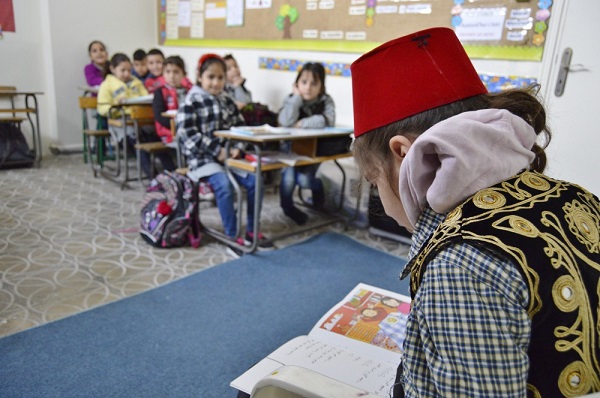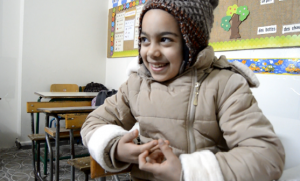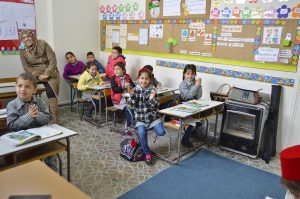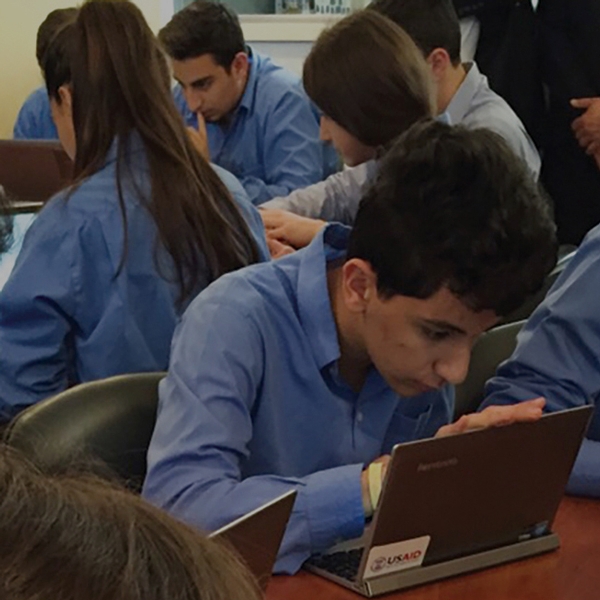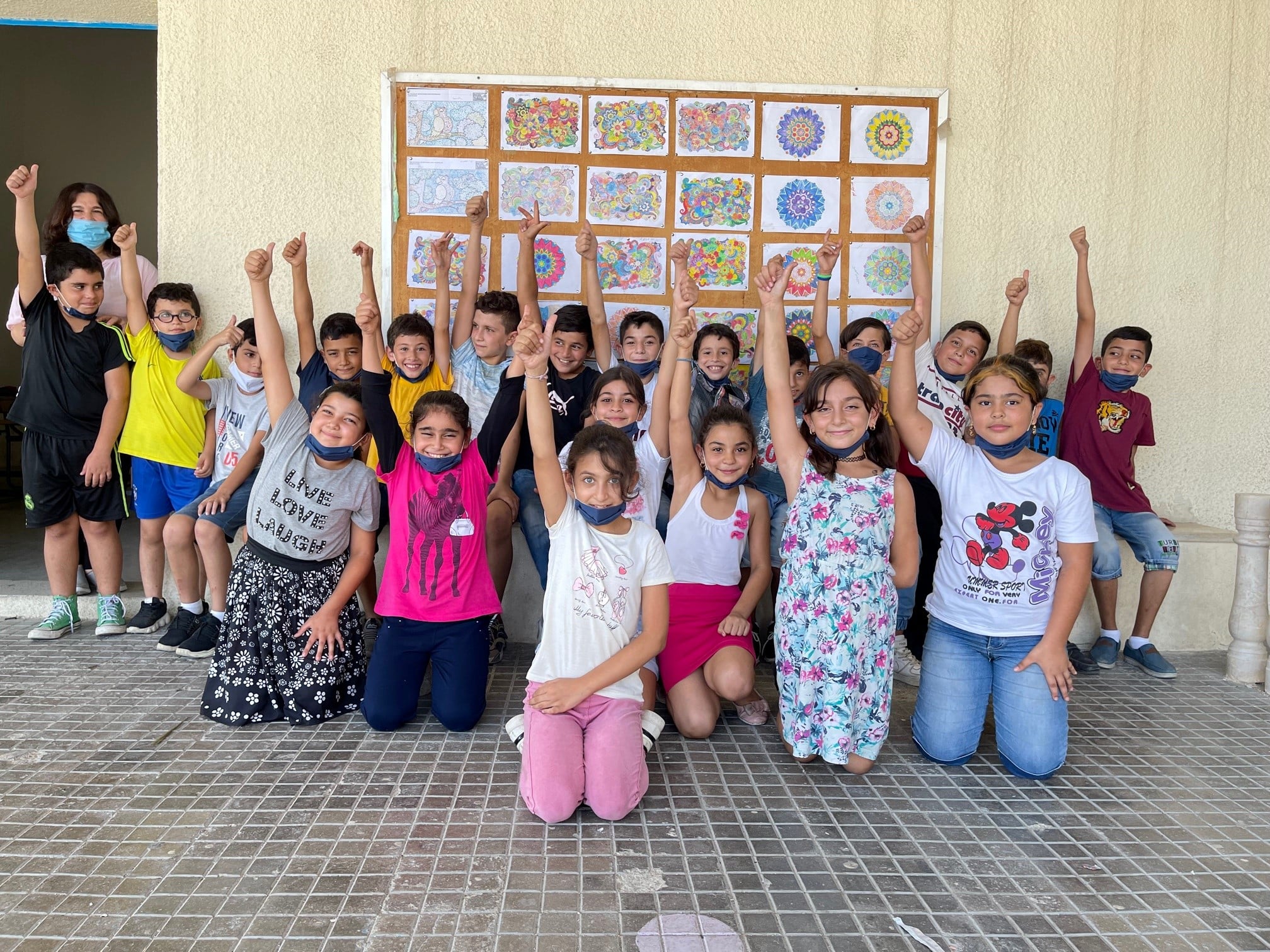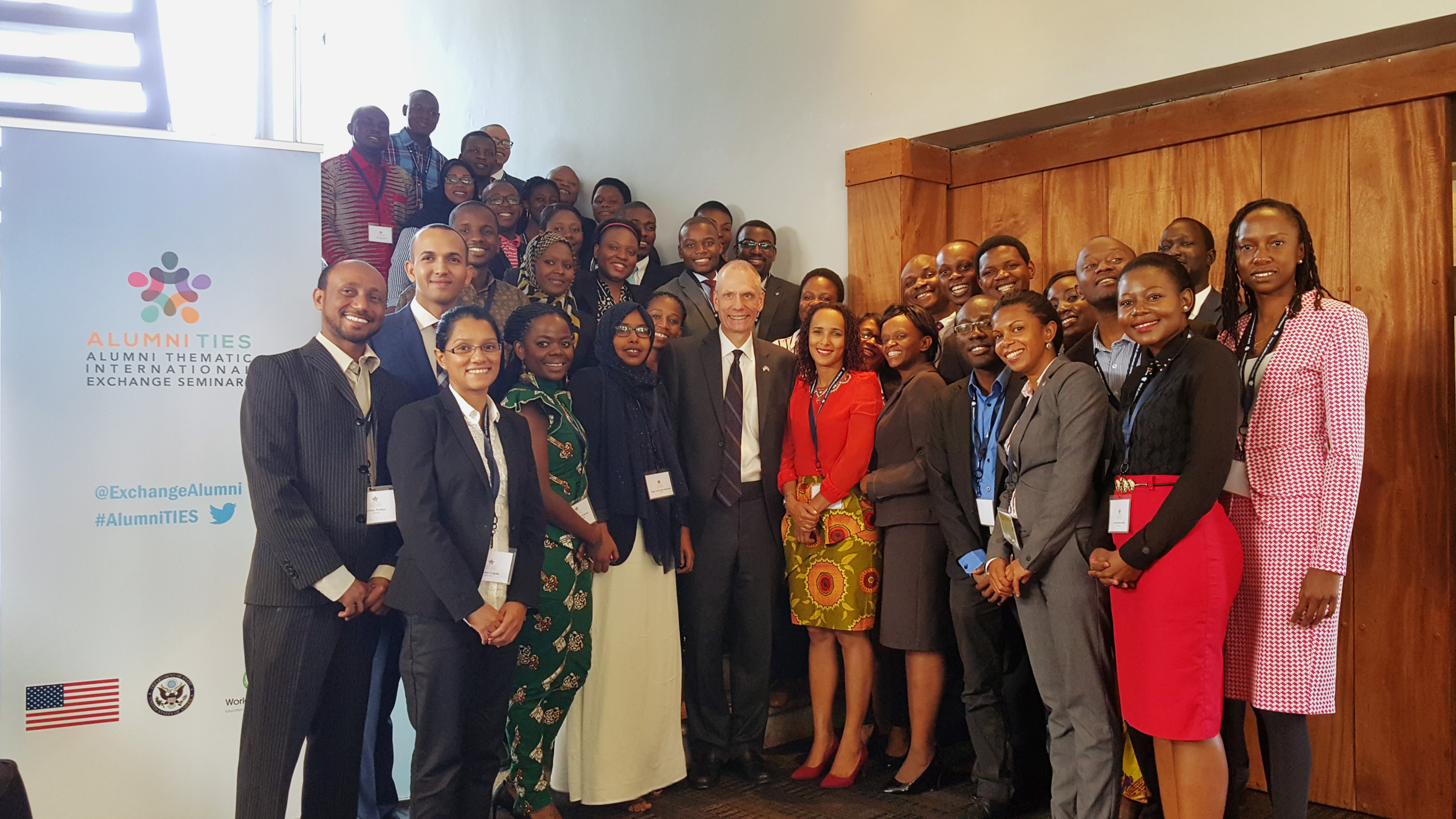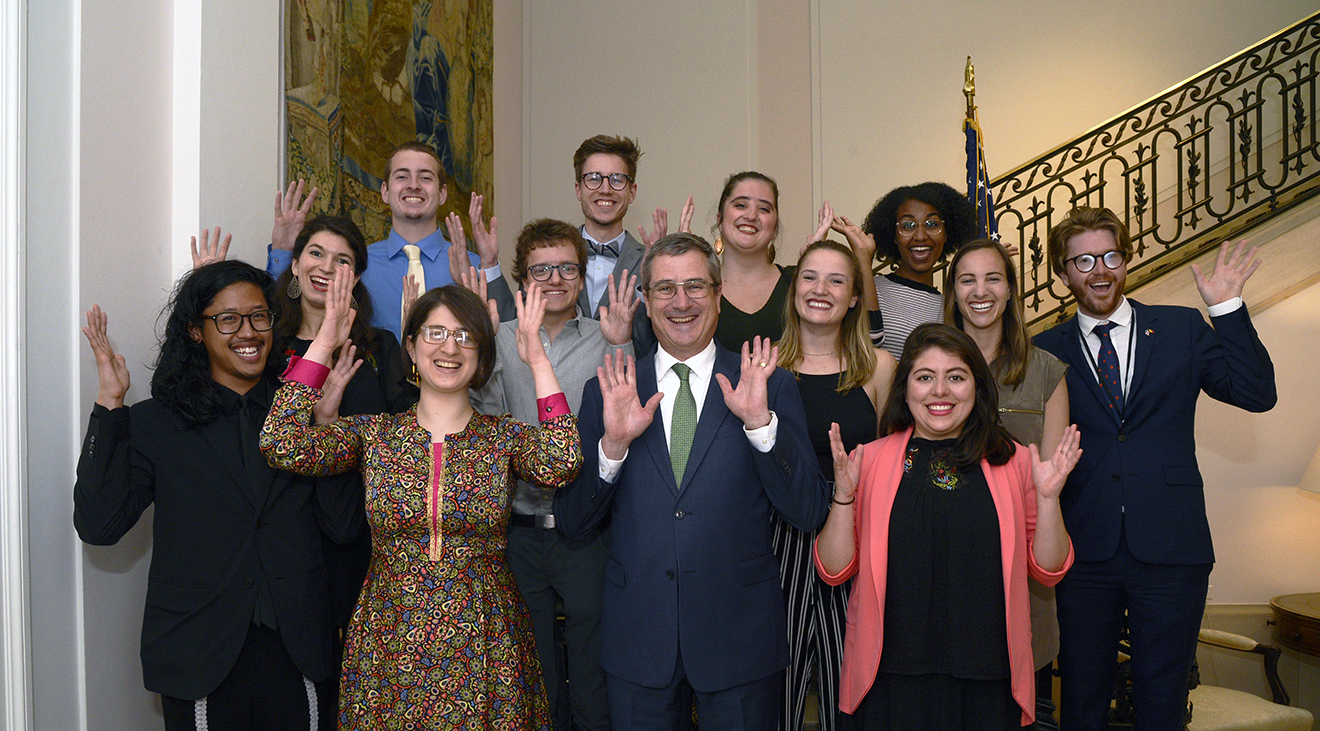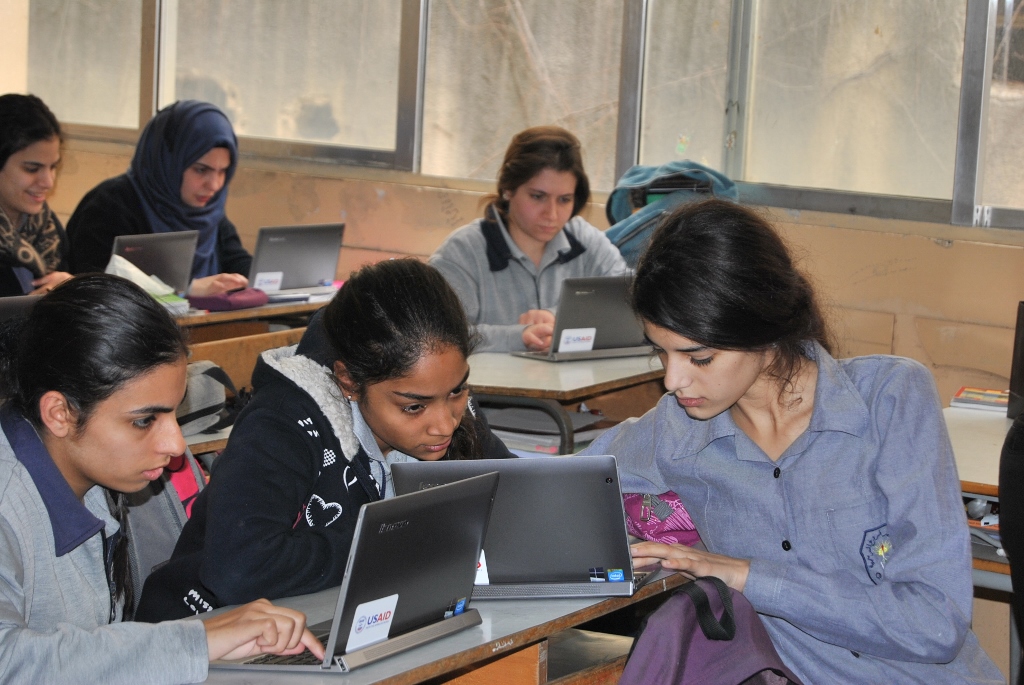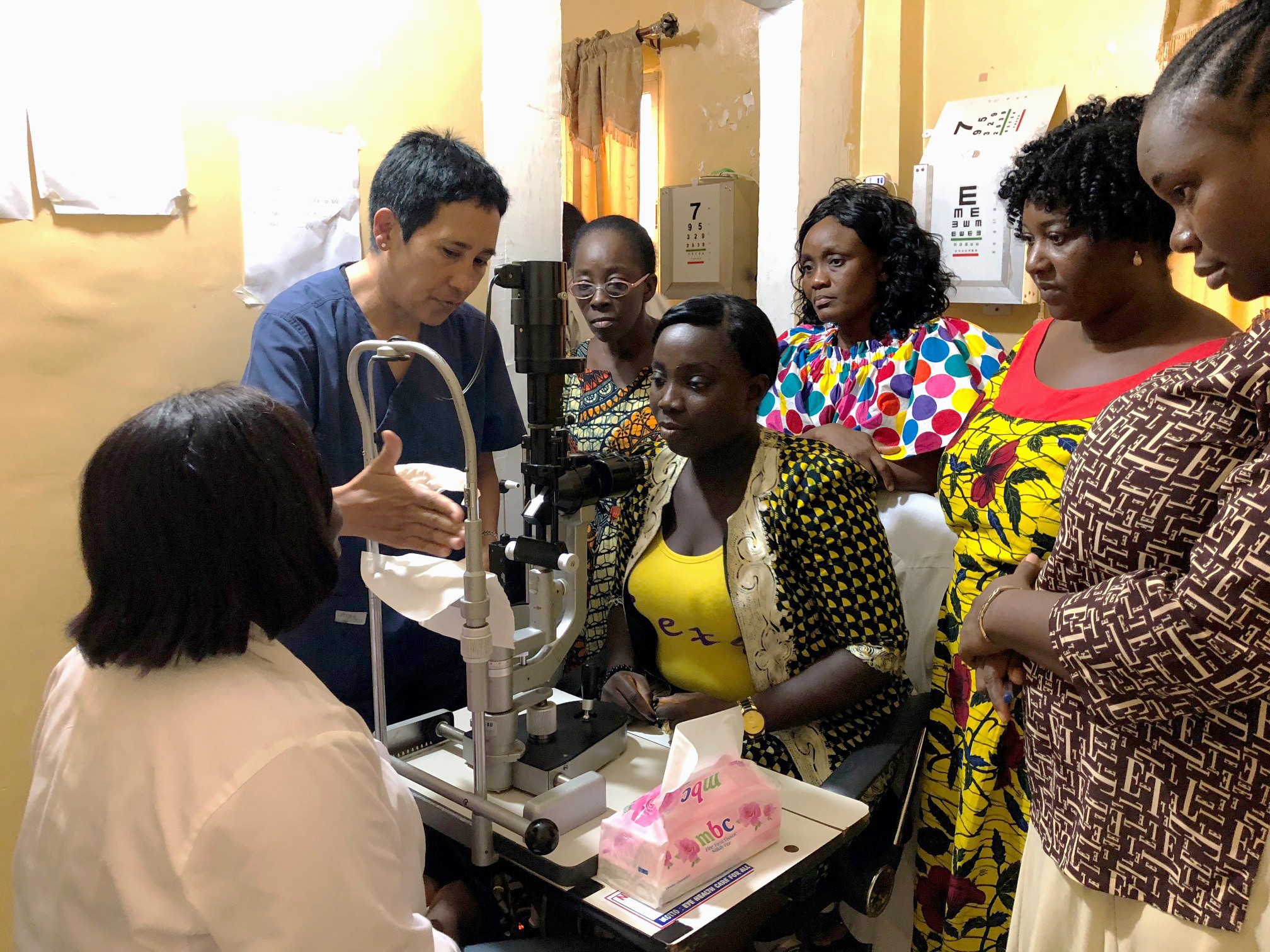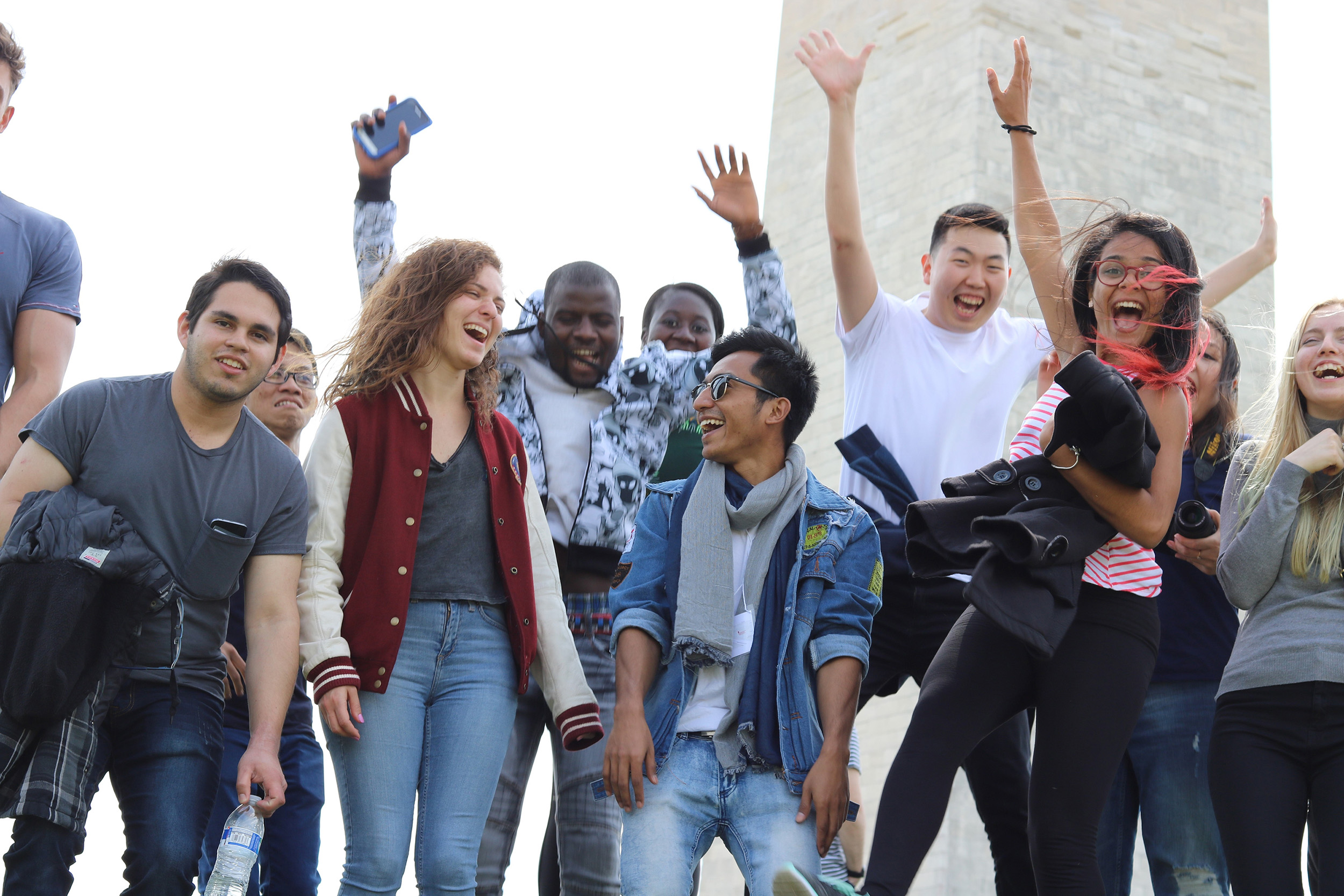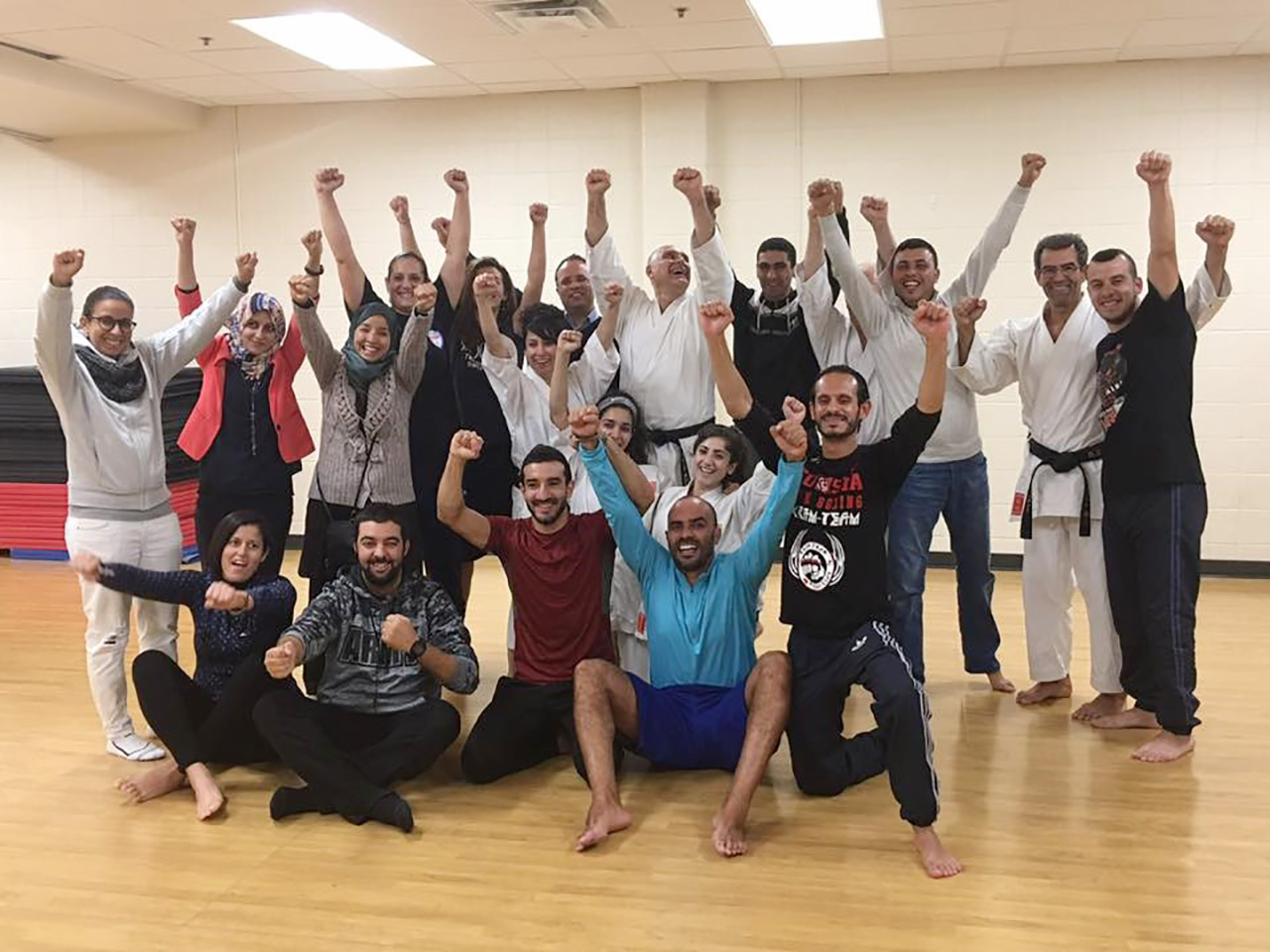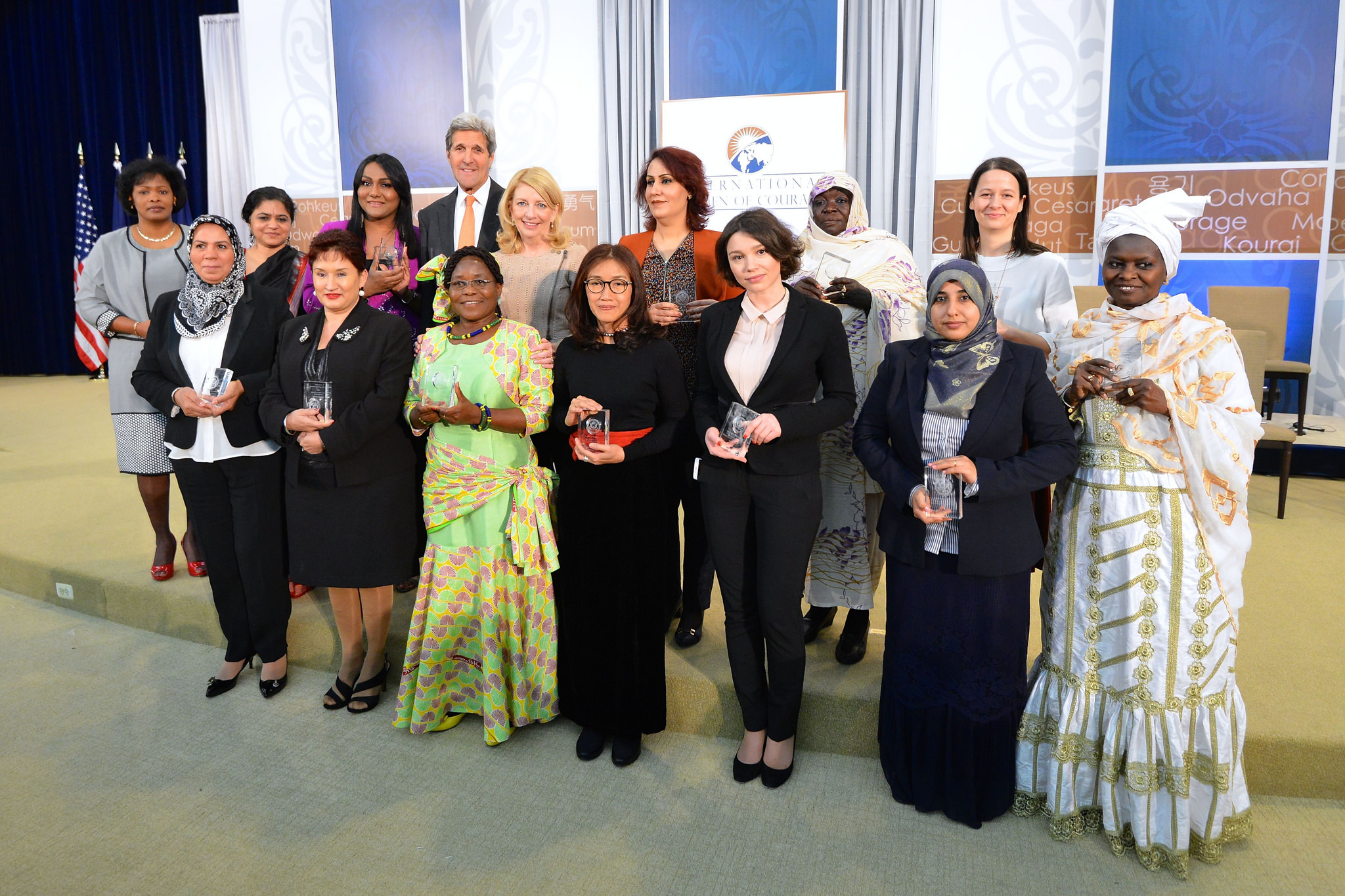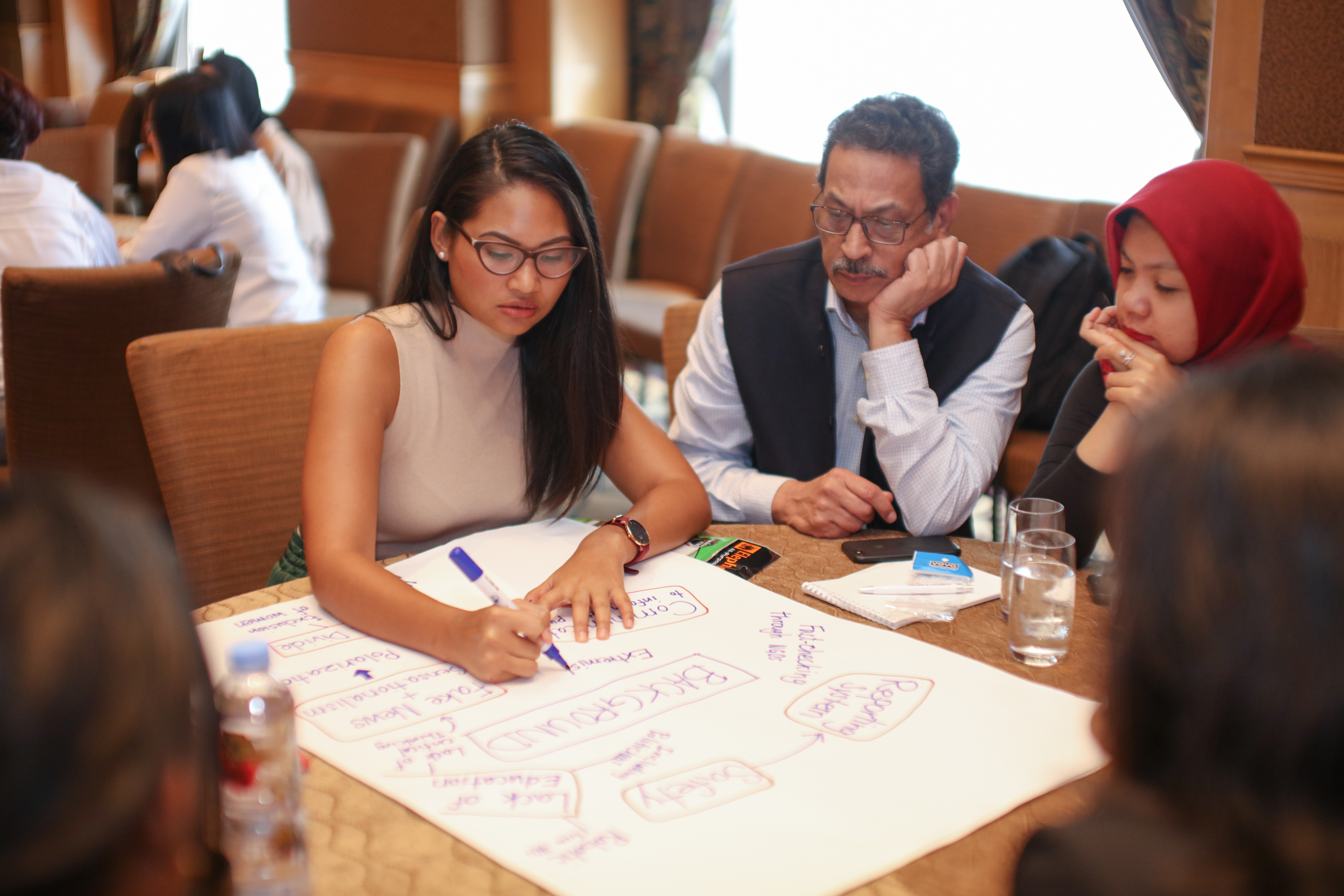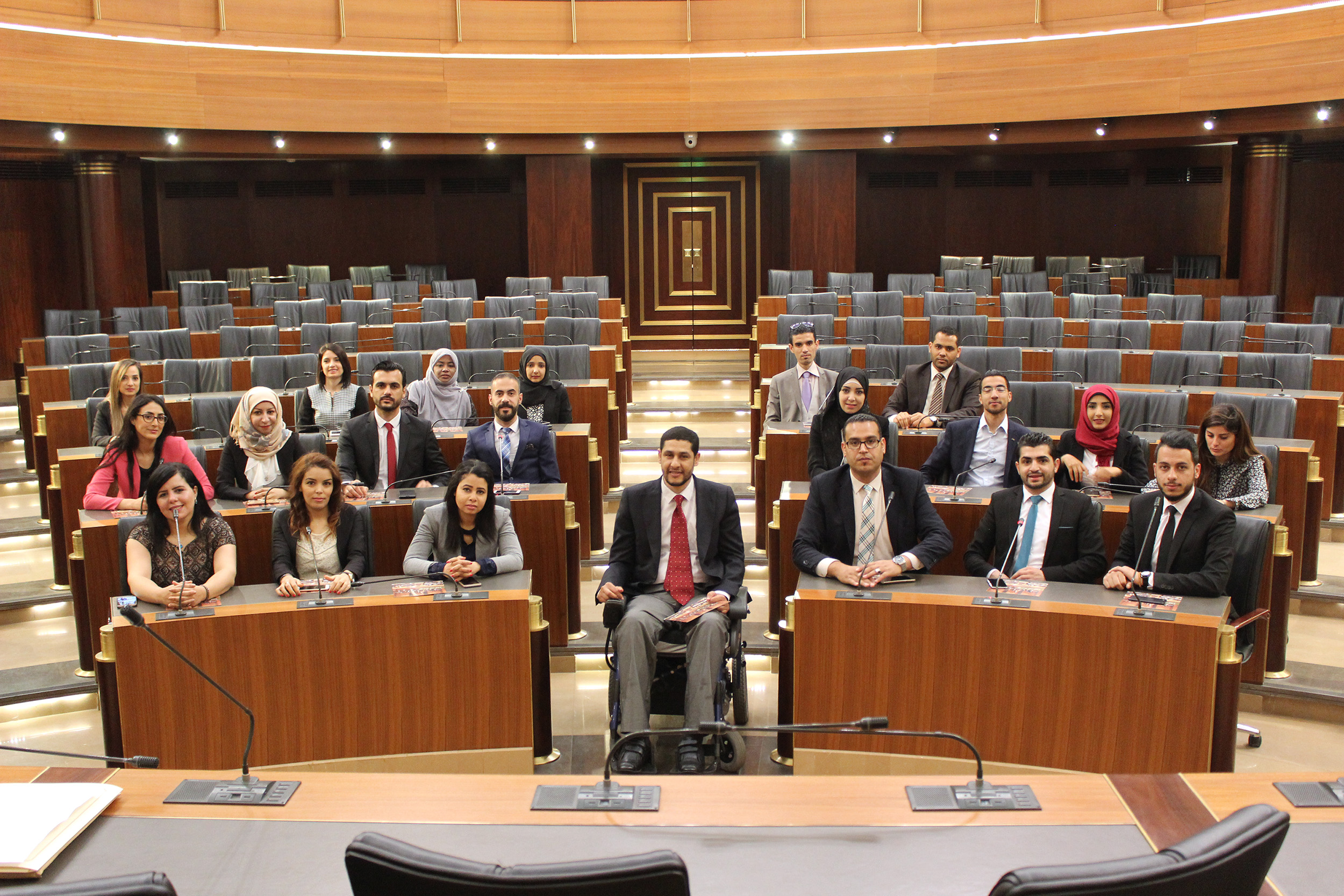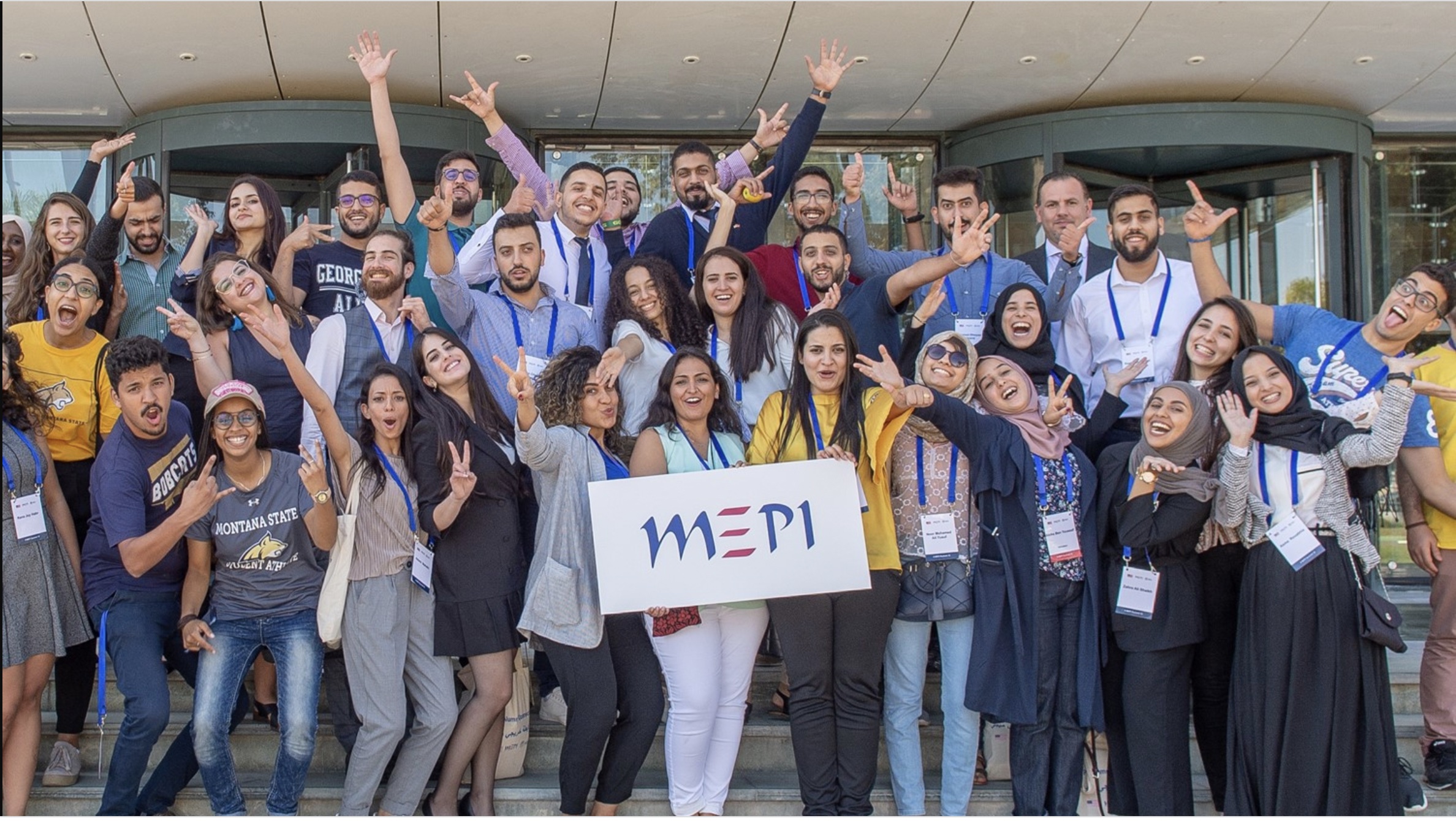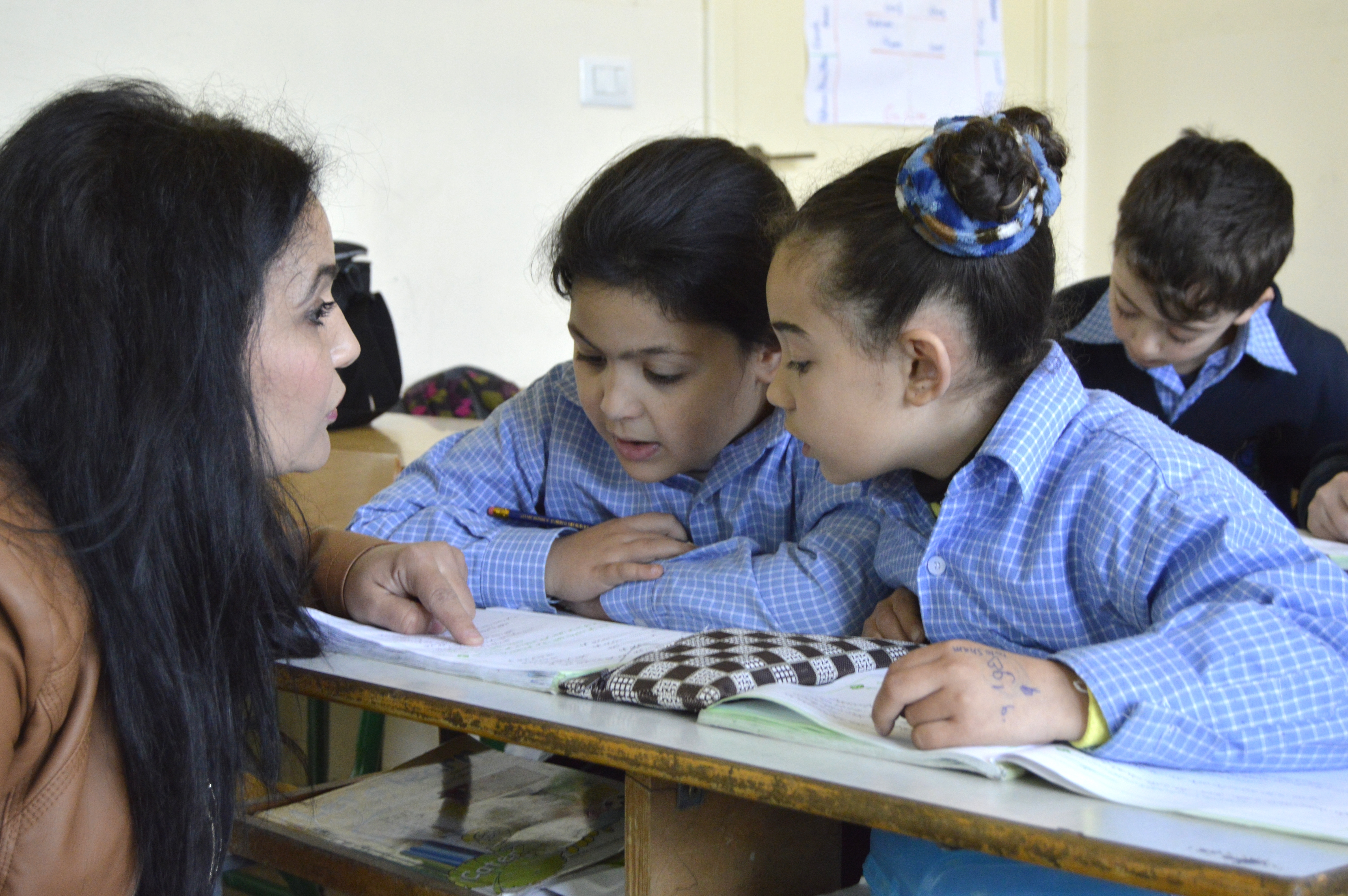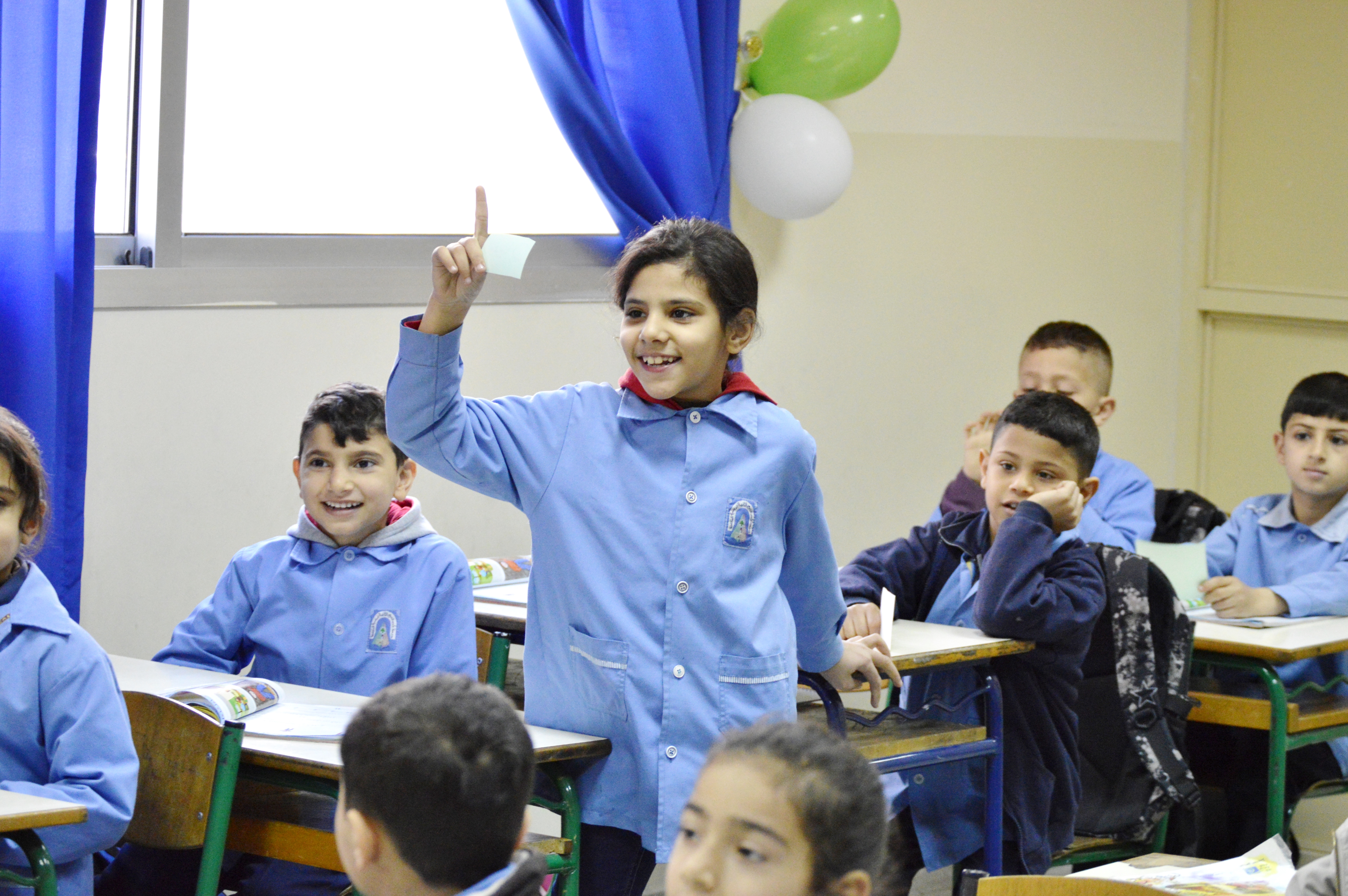Background and Context
Since March 2011, Lebanon has received over 1,200,000 Syrian refugees fleeing from one of the most atrocious civil wars of the decade. Seventy percent of the refugees in Lebanon are women and children and over 50 percent of them are children in need of educational services; i.e. over 400,000 children need to be enrolled and retained in some kind of learning space if not formal schooling.
The Lebanese public education system, supported by the international community and the UN agencies, opened its doors to welcome as many refugee children into their classrooms as possible, and over 250 schools started second shift schools (from 2:00 to 5:00 p.m.) to accommodate Syrian students where the morning shift classrooms reached their maximum capacity.
In this ever-evolving context the Lebanese public school teachers, administrators and principals face a wide range of challenges daily, ranging from learning and teaching to managerial and administrative fronts. One of the most prominent challenges is providing a positive learning environment for their students who, as a result of their background and experience, have specific academic, psychological and social needs which are accumulating with each day that passes. Indeed, the toxic stress of living in a context where individual and community relationships are frequently damaged, destabilised and in need of reconstruction and adaptation is challenging the healthy development and learning of children in Lebanon.
In terms of evidence, the science of child neuropsychology overwhelmingly demonstrates that exposure to toxic stress (including armed conflict, domestic violence, poverty, neglect) in early childhood has both negative and enduring consequences for all aspects of cognitive, physical, mental and socio-emotional development through adulthood (NSCDC, 2011; Tarullo, Bruce, & Gunnar, 2007; Shonkoff, Richter, van der Gaag & Bhutta, 2012; Nelson & Sheridan, 2011). In other words, both the science and the shifting landscape of contemporary warfare suggest that existing education models will fail to help refugee children to achieve academic outcomes unless they first protect their capacity to learn from stunting or deteriorating. Thus there is significant potential for psychosocial interventions to help children understand, cope with, and build resilience to the impacts of toxic stress, a role that has been recently acknowledged in the international community.
This might explain that although today the records show that the public education system in Lebanon hosts an equal amount of refugee children to Lebanese children, there are a number of reports that show that the dropout rate of the refugee children in quite high, with some reports claiming the dropout rate to reach 70 percent in some areas.
Moreover, several studies1 have been conducted to identify the barriers to enrollment and the reasons behind the high dropout rates and most have arrived to common conclusions; some of the recurring themes are:
- A lack of inclusion policies in the education system
- School principals and teachers are facing large array ofcomplex educational problems with minimum means for resolving them
- The recruitment of new teachers, many of whom with negligible experience in teaching, to teach in the afternoon shift
- Relatively high transportation costs
- The use of English or French as the medium of learning for the sciences and Math, whereas all subjects are taught in Arabic in the Syrian curriculum
To respond to these barriers and constraints, the international community through its development projects in the country and through the UN agencies, has devised a range of programs that are being implemented either through the Ministry of Education or through the local and international NGOs.
One of these projects is the Psychosocial Support (PSS) Program was implemented under the Developing Rehabilitation Assistance to Schools and Teacher Improvement (D-RASATI) 2 project, a USAID-funded, nationally focused program with the overarching goal of supporting the Ministry of Education and Higher Education (MEHE) to improve the performance of the Lebanese public school system and provide quality educational services to its students.
PSS Program Description
For the PSS program, World Learning, the lead implementer of D-RASATI, designed a comprehensive program for building the capacity in Lebanon, among MEHE professional trainers, teacher mentors and teachers, to meet the psychosocial needs of the public school students.
The first phase of the program was the development of a 5-day course titled “Essentials in Classroom Psychosocial Support” by experts at DC-based World Learning Home Office. The course was then tailored to Lebanon’s socio-educational context by a local PSS specialist and academic from the Lebanese University, who ensured that the course material and activities comply with the specific culture of the public school and its communities.
The World Learning training program comprises three phases:
- A Training-of-Trainers program, which prepared ministry teacher trainers and teacher mentors to deliver the subsequent teacher training and coaching phases.
- The roll out of the Essentials in Psychosocial Support for Teachers training to over 500 teachers
- The School-based Coaching phase which began when the Training-of-Trainers and the Essentials in PSS for Teachers courses were completed
The Essentials in Psychosocial Support for Teachers course began by exploring the definition, purpose, and impact of psychosocial support in the lives of children in trauma and crisis. Although the course focus was on providing psychosocial support to a sub-group of students, the knowledge and teaching practice the training presents supports all children in any classroom to better reach their full potential.
The course addressed three fundamental themes for teachers in their development of practical skills and disposition:
- Communication
- Classroom Management
- Teacher Well-being
The organizational model for exploring each theme was the World Learning Pyramid Framework for Psychosocial Support in Schools. This model presents three bases that create the foundation of psychosocial support within the classroom which, taken together, promote resilience, management of emotions, motivation for learning, and a sense of hope and control in the lives of the children with trauma. We now know that social and emotional learning and skills are influential factors, or perhaps even the most influential, for a child’s success academically, and in life outside the classroom. The three bases of the World Learning pyramid framework, therefore, focus specifically on fostering teaching practice that advances Caring Relationships, Positive Classroom Environment, and Social-Emotional Competence as seen in the image to the left. Reading the framework as a guide to psychosocial support, we see the fundamental role of forging strong, caring relationships between teachers and children. This is enhanced by, and in turn enhances, the creation of a positive classroom environment which is built by incorporating pro-social skills into the syllabus and actively fostering community within the class (for example employing teambuilding activities). The third base of the foundation is promotion of the social-emotional skills of the all students (for example, calming techniques). When these three inter-connected bases are in place, they build the foundation for students to experience school as a safe, stable place within which their opinions, ideas, and experiences are valued and where they are respected and cared for. Under these conditions school behavior and performance can improve and academic skills can be developed.
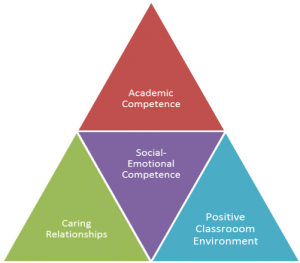
The World Learning PSS program, and all its components are organized around models and methodology of experiential learning and participatory methodology in which participants take an active role in their own learning and in which the training draws on participant experience and knowledge. Trainers in each phase of the program take a facilitative role in their work with the learners whether these learners are teacher trainers or teachers. Facilitators have knowledge of psychosocial support, and use a robust repertoire of collaborative, experiential, and participatory methods to guide teacher trainers and teacher mentors through activities and toward deep and lasting learning.
Starting November 2016, the project seven coaches conducted the PSS program training of trainers (ToT) and built the capacity of over 90 teacher trainers and teacher mentors on the provision of PSS approaches, PSS needs of children, and different PSS intervention techniques. The ToT focused on providing teachers with a conceptual framework for approaching children with social and psychological problems and developed their knowledge and understanding of concepts related to psychosocial support in education.
The rollout of the training on the five-day essentials commenced in February 2016. The rollout training sessions took place in the ministry teacher training centers all across the country. From February till end of May 2016, over 500 public school teachers were trained and mentored while implementing the PSS activities in their classrooms.
The PSS Program Impact Study
To assess the impact of the PSS program a study was conducted to examine whether the program met its main objective and reduced tension in the targeted classrooms hosting Syrian refugees2. The study assessed the following areas:
- Teachers attitudes and knowledge in relation to psychosocial support
- Teacher’s ability to create a positive classroom environment, constructively manage students’ behavioral challenges, address their psychosocial difficulties, and implement activities designed to increase children’s social-emotional competence.
- Teachers’ and students’ perception of their classroom environment (the extent to which it is caring, supportive, stable, levels of tension etc.)
- The psychosocial wellbeing of students.
- School-based factors including the level of support for the implementation of PSS among principals, the resources in schools available to support the implementation of PSS activities, awareness among principals of trauma-related behaviors difficulties among students and school’s discipline policies.
The impact study evaluated each phase of the project in order to establish a correlation between a reported reduction in tension in classrooms, an improvement in teacher capacity, and an increase in students’ psychosocial wellbeing. It also attempted to identify the systemic factors that influence teachers’ ability to apply what they have learned, through the PSS program, in their classes. Baseline and end line data were collected and a comprehensive report of the study was completed by end of August 2016.
Four tools were developed for the evaluation – Teacher Questionnaire; Student Questionnaire, Principal Questionnaire, and Strengths and Difficulties Questionnaire. 109 training participants from 65 schools took part in the impact study. Following are some of the key findings:
The findings of the evaluation indicate that the 5 Day Essentials training positively impacted teachers’ teaching practices, with a reported increase in the implementation of positive communication and classroom management techniques and practices to develop students’ social-emotional competence (SEC). The most significant increase in proficiency occurred in relation to developing SEC, with the number of teachers who used practices to develop students’ SEC ‘often’ or ‘very often’ increasing by 14 percent.
There was a significant reported decrease in disruptive behavior. Before the training, 41 percent of teachers indicated that students were disruptive ‘very often’, and after the training this dropped to 21 percent.
Both teachers and students reported an increase in students’ comfort in sharing their feelings in class. The number of teachers who reported that students felt comfortable sharing their feelings ‘often’ or very ‘often’ increased by 50 percent.
There was a significant increase in children’s psychosocial wellbeing. The average psychosocial wellbeing of students moved from ‘borderline abnormal’ to ‘normal’, which, given the short timeframe of the evaluation, is highly significant.
Today the ministry has taken ownership over the PSS trainings and committed to continuing to offer these trainings to teachers through its in-service program. Moreover, World Learning has drafted a policy paper that focusses on the measures needed to integrate both a culture of and the capacity to provide PSS in the Lebanese public school systems. The paper advocates for a systems change approach that responds to the psychosocial needs of all vulnerable children, both Lebanese and non-Lebanese, enrolled in public schools.
Notes
1 Adapted from the 2011 PSS Guide for Teachers created by World Learning for teachers in Ethiopia with funding from USAID as part of the project, School-Community Partnership Serving HIV/AIDS affected OVCs.
2World Learning (2016), D-RASATI 2 5 Day Essentials Training Program in Psychosocial Support: Impact Evaluation Study
References
Education for Syrian Refugees: Providing hope in Lebanon
http://luminosfund.org/media/32513/20160131-speed-schools-education-for-syrian-refugees-v2.pdf
Government of Lebanon, United Nations (2017). Lebanon Crisis Response Plan 2017-2020.
Human Rights Watch (2016), Growing up Without an Education: Barriers to Education for Syrian Refugee Children in Lebanon.
London Conference (2016), Syria Crisis Education Strategic Paper.
UNHCR.org, http://data.unhcr.org/syrianrefugees/regional.php
World Learning (2016), D-RASATI 2: 5 Day Essentials Training Program in Psychosocial Support: Impact Evaluation Study
World Learning (2016), D-RASATI 2 5 Day Essentials Training Program in Psychosocial Support: Impact Evaluation Study






